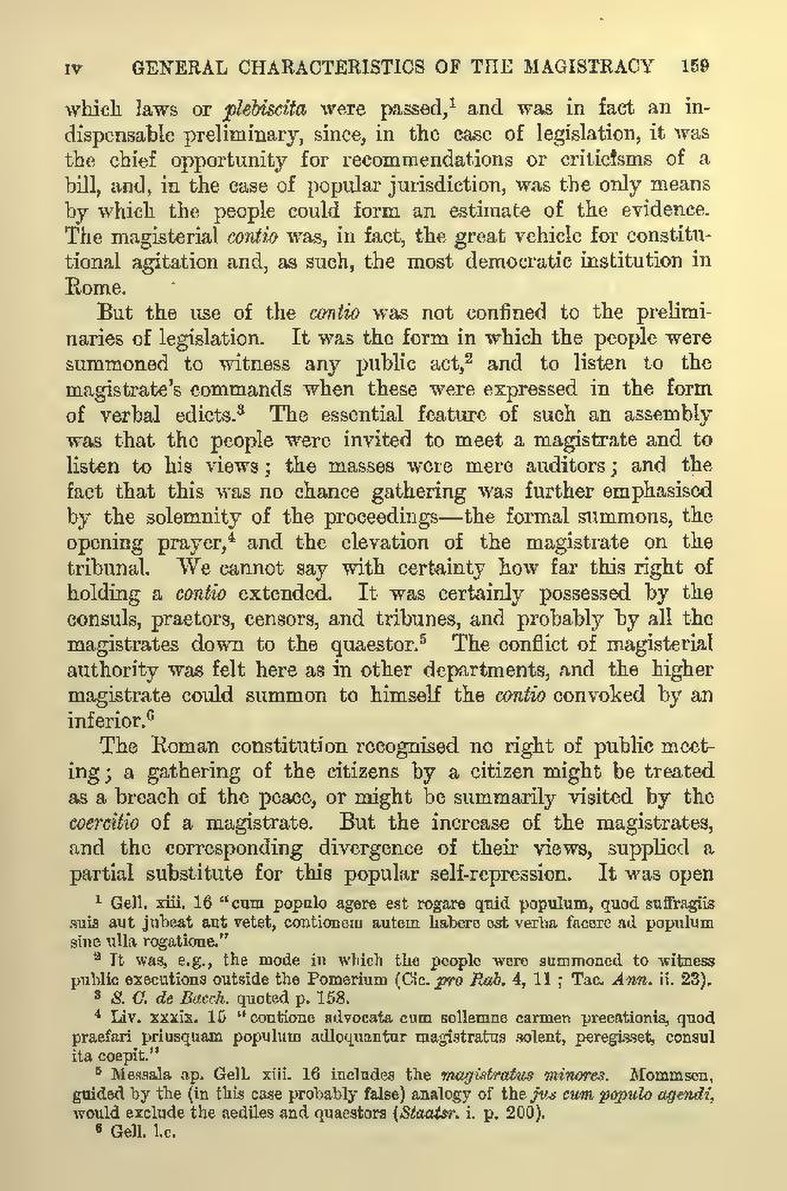which laws or plebiscita were passed,[1] and was in fact an indispensable preliminary, since, in the case of legislation, it was the chief opportunity for recommendations or criticisms of a bill, and, in the case of popular jurisdiction, was the only means by which the people could form an estimate of the evidence. The magisterial contio was, in fact, the great vehicle for constitutional agitation and, as such, the most democratic institution in Rome.
But the use of the contio was not confined to the preliminaries of legislation. It was the form in which the people were summoned to witness any public act,[2] and to listen to the magistrate's commands when these were expressed in the form of verbal edicts.[3] The essential feature of such an assembly was that the people were invited to meet a magistrate and to listen to his views; the masses were mere auditors; and the fact that this was no chance gathering was further emphasised by the solemnity of the proceedings—the formal summons, the opening prayer,[4] and the elevation of the magistrate on the tribunal. We cannot say with certainty how far this right of holding a contio extended. It was certainly possessed by the consuls, praetors, censors, and tribunes, and probably by all the magistrates down to the quaestor.[5] The conflict of magisterial authority was felt here as in other departments, and the higher magistrate could summon to himself the contio convoked by an inferior.[6]
The Roman constitution recognised no right of public meeting; a gathering of the citizens by a citizen might be treated as a breach of the peace, or might be summarily visited by the coercitio of a magistrate. But the increase of the magistrates, and the corresponding divergence of their views, supplied a partial substitute for this popular self-repression. It was open
- ↑ Gell. xiii. 16 "cum populo agere est rogare quid populum, quod suffragiis suis aut jubeat aut vetet, contionem autem habere est verba facere ad populum sine ulla rogatione."
- ↑ It was, e.g., the mode in which the people were summoned to witness public executions outside the Pomerium (Cic. pro Rab. 4, 11; Tac. Ann. ii. 23).
- ↑ S. C. de Bacch. quoted p. 158.
- ↑ Liv. xxxix. 15 "contione advocata cum sollemne carmen precationis, quod praefari priusquam populum adloquantur magistratus solent, peregisset, consul ita coepit."
- ↑ Messala ap. Gell. xiii. 16 includes the magistratus minores. Mommsen, guided by the (in this case probably false) analogy of the jus cum populo agendi, would exclude the aediles and quaestors (Staatsr. i. p. 200).
- ↑ Gell. l.c.
